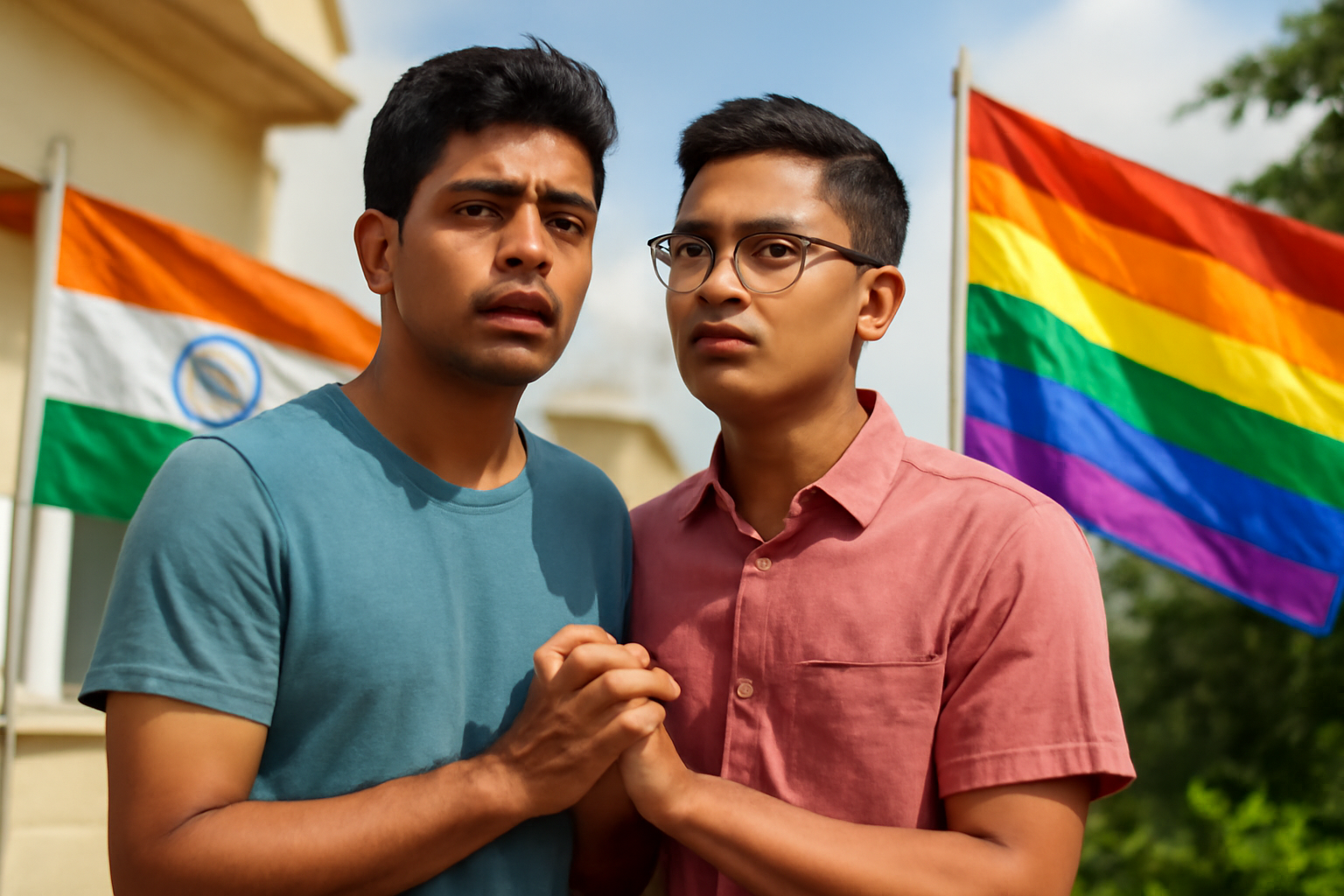
Travel in India has become increasingly difficult for unmarried couples, with LGBTQ+ partners facing additional challenges. A recent policy change by OYO Rooms, a major hospitality chain, has allowed their partner hotels in Meerut, a city approximately 50 miles from New Delhi, to refuse reservations to unmarried couples.
As of January 9th, OYO Rooms requires all couples to present valid proof of their relationship when checking in, even for bookings made online. This decision, according to the company, aligns with local social norms and may be extended to other cities based on feedback from the area.
OYO Rooms, which collaborates with over half a million hotels across India and operates in various regions including Asia, the U.S., and Europe, has faced pressure from local civil society groups in Meerut. These groups encouraged OYO to implement measures that restrict the accommodation of unmarried couples. Similar petitions have been made by residents in other cities.
Previously, budget hotel chains like OYO were seen as safe havens for couples seeking privacy in India. The new policy has sparked online criticism, as many perceive it as a shift from the brand’s reputation as a refuge for unmarried couples. In a society where private spaces are limited, this decision has drawn backlash for limiting affordable accommodation options.
LGBTQ+ couples, who often depend on budget hotels such as OYO for privacy, may be particularly affected by this policy change. Despite the Indian Supreme Court ruling in 2023 that LGBTQ+ individuals have the right to form relationships without discrimination, the court did not grant marriage rights to same-sex couples. OYO’s policy adds another layer of difficulty for them, further marginalizing the LGBTQ+ community.
India’s tourism industry in 2023 saw an increase in foreign visitors, welcoming approximately 9.23 million compared to 7 million in 2021. However, this is still below the pre-pandemic peak of 10.93 million in 2019. While specific data for LGBTQ+ tourists is limited, restrictive policies like OYO’s could pose challenges for LGBTQ+ travelers seeking budget-friendly accommodations.
Pawas Sharma, the Head of OYO’s North India Region, emphasized the company’s commitment to safe and responsible hospitality. "We respect individual freedoms and personal liberty," Sharma stated in a press release, "but we also acknowledge our responsibility to engage with law enforcement and civil society groups in our operating markets. We will continue to review this policy periodically."
OYO, positioning itself as a provider of safe experiences for families, students, business travelers, religious pilgrims, and solo travelers, claims to be challenging outdated perceptions with this policy.
A survey conducted by Booking.com in 2023 revealed that 91% of LGBTQ+ travelers in India prioritized their personal safety and well-being when choosing travel destinations, a significant increase from 70% the previous year.
Global transgender activist and founder of the Sahodari Foundation, Kalki Subramaniam, expressed surprise at OYO’s decision, questioning the company’s moral stance. "What are they trying to achieve with this moral code?" she asked. "I want to know their stance on LGBTQ+ rights."
Attempts to contact OYO founder Ritesh Agarwal for comment have so far been unsuccessful.
Sudhanshu Latad, an advocacy manager at Humsafar Trust, a leading LGBTQ+ organization in India, voiced uncertainty about the impact this policy might have on the LGBTQ+ community. "Two boys in India are not generally seen as married," Latad noted. "However, for a trans woman and a man, this could pose a challenge."
Latad also referred to the Supreme Court’s 2023 ruling on marriage equality, which allows trans individuals within the gender binary system to marry legally. Despite this, economically marginalized individuals often face difficulties and sometimes resort to bribing hotel staff in budget hotels like OYO Rooms.
Latad explained that tourists are typically divided into affluent leisure travelers and budget-conscious backpackers. "If backpackers are gay white men, they usually face no trouble securing a room," he said. "OYO’s policy, however, appears to be discriminatory against heterosexual unmarried couples."
This policy change represents a significant shift in the hospitality landscape in India, impacting both local and international travelers. As the debate continues, the voices of civil society, LGBTQ+ advocates, and travelers will play a crucial role in shaping the future of hospitality in the region.
Related Posts
Pride Month in Latin America: Protests and Demands for Equality
**Celebrating Pride and advocating LGBTQ+ rights in Latin America** Pride Month in Latin America was a lively mix where celebration met activism. Communities united, not just throwing a party but making a stand—demanding equality and pushing governments toward better protection and rights recognition. Throughout Latin America, pride events erupted in marches and cultural displays, each with a c [...]
Transgender Erasure Actions Implemented by National Park Service
```html Trump administration's impact on national park service and transgender recognition The Trump administration made notable moves in undermining transgender representation, which included directing agencies like National Park Service not include "T" and "Q" when they refered “LGBTQ” in any official communication. This move seems part a broader plan by this administration aimed at reducin [...]
Drag Night Extravaganza: Daddies & Baddies at Atlantic City's Anchor Rock Club
Atlantic City, NJ, isn't just about its casinos and boardwalk—it's a hub bursting with energy and entertainment. One event that truly captures this spirit? The "Daddies & Baddies" drag night at Anchor Rock Club. This vibrant night celebrates amateur drag in all its glory, offering a kaleidoscope display where creativity and community unite. If you're looking where inclusivity and creativity take [...]